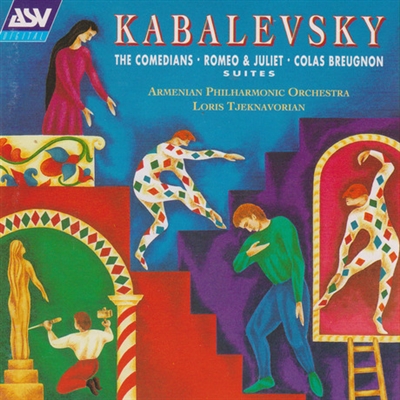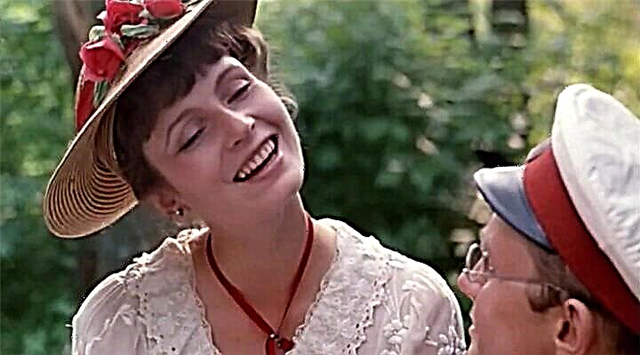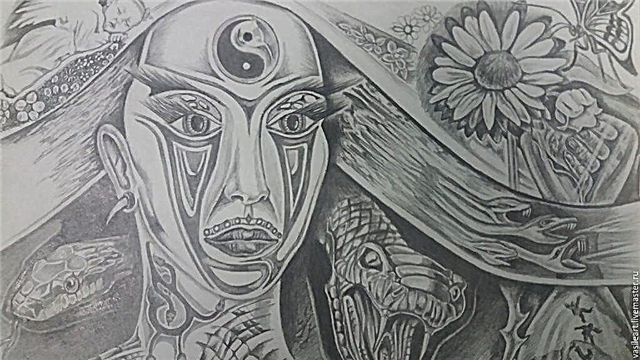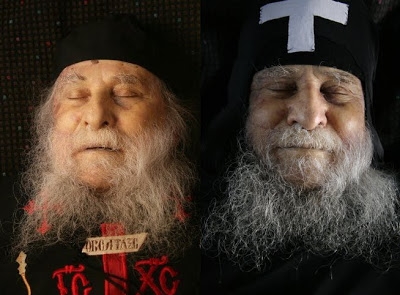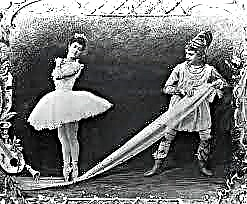Nekrasov is the most famous author of his time, who wrote on acutely social topics. He touched on the problems of self-esteem, humiliation and insult, slavery and tyranny. An example we can find the work "On the Road."
History of creation
Nekrasov worked hard on the work in 1845. Since after the collection "Dreams and Sounds" the poet failed, he tried and put all his strength into the work. He decided to change the themes of creativity, and make everyday life the main object of his works, write about the life of people and everyday problems that concerned ordinary people.
After V. G. Belinsky read this work, he was shocked. Despite the simplicity and routine of the topic of the difficult fate of the peasantry, Belinsky praised the written:
Do you know that you are a poet and a true poet!
Genre, direction and size
For the most part, Nekrasov wrote in the direction of realism. It is worth adding that “On the Road” is ranked in the civilian lyrics. The poet tried to convey the naturalness of the life of the peasantry, the whole authenticity of what was happening in those days.
A work is written in the form of a coachman's conversation. By genre, it in some sense refers to Yamschitsky songs, goes back to folklore and is at the junction between the lyrical and the epic beginning.
Size - three-footed anapaest. The rhyme is lively and energetic due to the plexus of male and female, and there is also a chaotic rhyme of the cross, pair and ring.
Images and Symbols
The lyrical hero in Nekrasov’s work “On the Road” experiences incredible boredom from life and longing. And in order to have some fun, he asks the coachman to help him with this, so that he will entertain him with some story, tell him something. This is a curious traveler who does not shy away from talking with ordinary people, does not behave arrogantly. He is interested in the whole world without exception. That must be a real poet. It is distinguished from others by a subtle perception of the world, the ability to analyze and reason. He knows and understands that the peasant's wife, brought up in the traditions and mores of the manor house, cannot love the hard and ugly village life.
But the fact is that the driver wasn’t too happy, he was worried about thoughts about his wife, so he knows the master’s story of his life. This is an ordinary peasant with a traditional set of values: family, home, land. But he had everything, not like people, because he got an atypical lady as his wife. All the time he is tormented by the fact that she is unhappy with his society, and his whole set of attitudes is alien to her.
His wife, the peasant Grusha, was raised in a manor house, and had the opportunity to get a good education. She learned to read and even learned to play the organ. But after the death of the master and the growing up of a young lady, in which the girl was a companion, a sophisticated and not adapted to physical work, Pear was sent back to the village, where she was forcibly married unfriendly to a rude and untidy man. All her suffering is no longer from the work that she is not used to doing, but from violence and powerlessness, from the inability to control her destiny. This is an intelligent, sensitive and gifted nature, which the owners only crippled by their patronage. If she had been brought up like everyone else, none of this would have happened, but come gentlemen are more important than her fate. Feelings and talents of the girl were trampled on the next whim.
The coachman is still at a loss and does not understand. What did he do this, because all his life, according to him, he treated her well. He only beat her on a drunk head, but that doesn’t count. The coachman is too simple and stupid, and does not understand why his wife does not behave like other women. He lives without second thoughts about the present, does what he does until a moment comes that he will have to think about. Of course, he blames the gentlemen for her “corruption”, but, in fact, they are not to blame for the upbringing, but for not arranging the girl with such skills properly.
Themes and mood
- Nekrasov raises in a poem the theme of human tragedywho is not his own master. Slavery in its description takes on a sophisticated form. The girl was deceived by vain hopes, lured by an easy and beautiful life, and then, not thinking about her adaptation in the new conditions, they threw him out of the house, and even married him against his will. It is impossible to even imagine how she felt, having known all the hardships of serfdom on herself.
- Misunderstanding. The lyrical hero, who listens to the story of the coachman, understands that it’s hard for his wife to live in such conditions not from hard work, but from a violent life, from humiliation. The coachman believes that the peasant woman was ruined by her upbringing, which she received in the manor house. In part, he is right, but in a country where education and manners interfere with living, a free and highly intellectual person cannot develop. This is another problem raised by the poet - the backwardness of Russia, bogged down in serfdom.
- Love theme. The coachman loves his wife in his own way, but in his upbringing a corporal punishment system is laid down and provided for. The wife should also work on a par with a man, is obliged to fulfill his conjugal duty and manage to manage the household. There is no time for music and reading novels. Naturally, he does not understand the true needs and feelings of a woman brought up according to lordly canons. Her love is a romantic and sublime feeling from many fictional stories. She takes life in a different way; her ideas are close to the ideal learned from books. For her, her husband’s love seems rude ignorance and intolerable vulgarity.
- The problem of permissiveness and irresponsibility. Gentlemen do not think about the fate of the peasants, their actions are not motivated by anything other than their own whims. They do not consider servants for people, and all book humanism disappears when they dispose of slaves. Neither the king nor the court punish this in any way, so the nobles use their power without hesitation.
- Mood oppressive is created, because Pear can’t help in any way, and there are hundreds, or maybe thousands of such Pears. The problem posed by the author has not been resolved, and the main theme (the rigidity and injustice of serfdom) has not lost its severity for many years to come. This page in Russian history should be considered shameful.
Main idea
The theme of landlord tyranny is not new to the literature of those years. The heroine of the poem, a peasant girl, at the whim of the master touched world culture and felt like a man of a different social level, but, in fact, she remained the same slave, and fate proved this very convincingly. The meaning of the author’s message to posterity is that you can’t dispose of a person as a thing. He has a mind and feelings, consciousness and will, and, therefore, has the right to self-determination and personal life, which are consistent with his choice. Now it is obvious, but then only advanced thinkers understood this.
A peasant woman returns to her environment and marries a peasant without skills in peasant labor. Without the habit of such an existence, it is doomed to death. The author unexpectedly compares 2 moralities: the dominant and peasant. The coachman did not succeed in his family life, but telling his story, he openly sympathizes with his wife, realizing the whole tragedy of her situation: "Her gentlemen have destroyed her." The true humanism of the simple Russian peasant contrasts with the rigidity of enlightenment and the pseudo humanity of the masters. This is the main idea of the work: kindness should be in practice, not in words. Even a rude and drinking man is sorry for the girl, but not for her smart, respected and sober owners. This means that they are clearly hypocritical and deceiving themselves, because their souls are a hundred times more primitive than the nature of the village peasant.
Means of artistic expression
Since Nekrasov wrote in the genre of Yamshchitsky songs, one can find many vernaculars in his work, such as: “girl”, “woman”, “man”, “bait”, “got sick” and “kuda”. So he reproduces genuine folk speech without embellishment.
To express and convey the emotional mood, the author uses such epithets as: “dashing woman”, “courageous coachman”, “tireless work”, and metaphors: “drunk hand”, “persistent boredom”.


